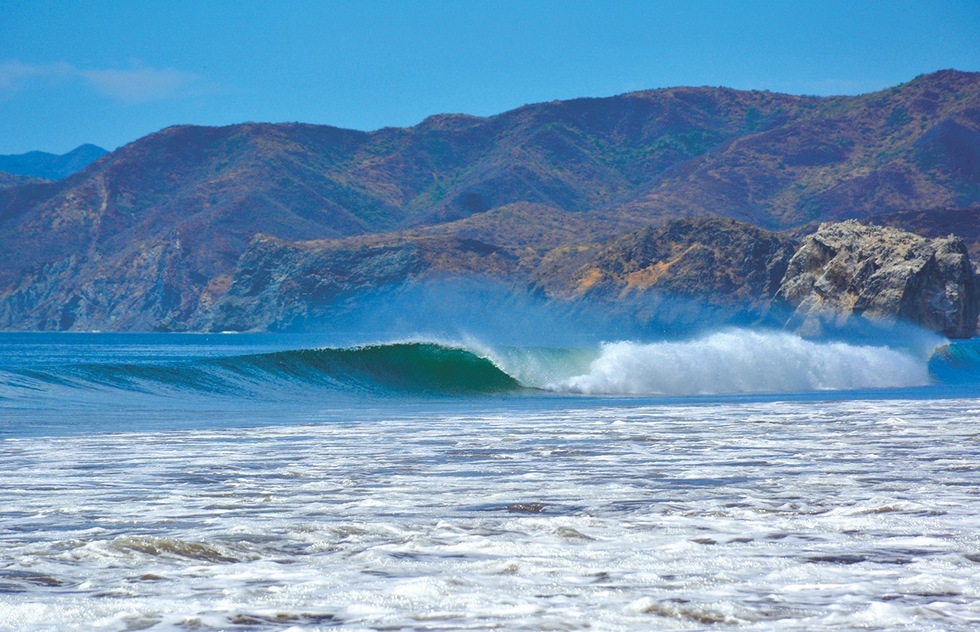Costa Rica is one of the planet’s prime ecotourism destinations. Many of the hotels, isolated nature lodges, and tour operators around the country are pioneers and dedicated professionals in the sustainable tourism field. Many other hotels, lodges, and tour operators are earnestly jumping on the bandwagon and improving their practices, while still others are simply “green-washing,” using the terms “eco,” “green,” and “sustainable” in their promo materials, but doing little real good in their daily operations.
In 2018, Costa Rica was ranked 30th globally in the Environmental Performance Index. This is not a particularly impressive feat given the country’s image and marketing strategy. Despite its reputation, the substantial amount of good work being done, and ongoing advances being made in the field, Costa Rica is by no means an ecological paradise free from environmental and social threats. Untreated sewage is dumped into rivers, bays, oceans, and watersheds at an alarming rate. Pineapple and palm oil plantations have destroyed vast tracts of native forests. Child labor and sexual exploitation are common, and certain sectors of the tourism trade only make these matters worse.
But in recent decades, Costa Rica has taken great strides toward protecting its rich biodiversity. Thirty years ago, it was difficult to find a protected area anywhere, but now more than 13% of the country is protected within the national park system. Another 15 to 20% of the land enjoys moderately effective preservation as part of private and public reserves, Indian reserves, and wildlife refuges and corridors. Still, Costa Rica’s precious tropical hardwoods continue to be harvested at an alarming rate, often illegally, while other primary forests are clear-cut for short-term agricultural gain.
While you can find hotels and tour operators using sustainable practices all across Costa Rica—even in the San José metropolitan area—a few prime destinations are particular hot spots for sustainable tourism practices. Of note are the remote and wild Osa Peninsula and Golfo Dulce area of southern Costa Rica, the rural Northern Zone that includes both Monteverde and the Arenal Volcano and Lake Arenal attractions, and the underdeveloped Caribbean coast, with the rainforest canals of Tortuguero, Cahuita National Park, and the Gandoca-Manzanillo Wildlife Refuge.
In addition to focusing on wildlife viewing and adventure activities in the wild, ecolodges in these areas tend to be smaller, often lacking televisions, air-conditioning, and other typical luxury amenities. The more remote lodges usually depend on small solar and hydro plants for their power. That said, some of these hotels and lodges provide levels of comfort and service that are quite luxurious.
In Costa Rica, the government-run tourism institute (ICT) provides a sustainability rating of a host of hotels and tour agencies under its Certification for Sustainable Tourism (CST) program. You can look up the ratings at the website www.turismo-sostenible.co.cr.
Bear in mind that this program is relatively new and the list is far from comprehensive. Many hotels and tour operators in the country haven’t completed the extensive review and rating process. Moreover, die-hard ecologists find some of these listings and the criteria used suspect. Still, this list and rating system is a good start, and is improving and evolving constantly.
A parallel program, “The Blue Flag,” is used to rate specific beaches and communities in terms of their environmental condition and practices. The Blue Flags are reviewed and handed out annually. Current listings of Blue Flag–approved beaches and communities can be found at www.visitcostarica.com.
While sustainable tourism options are widespread in Costa Rica, organic and sustainably grown fruits and vegetables (as well as coffee) are just beginning to become available. Very few restaurants feature organic produce, although that is starting to change. Cayuga Collection works with the U.S.-based program Dock to Dish to ensure that all of their seafood comes from sustainable sources, and uses only hormone-free poultry and grass-fed beef in their restaurants.
If you’re not booking your hotel, tours, and transportation by yourself, you might want to consider using a tour agency that has earned high marks in this area. In Costa Rica, Horizontes (888/786-8748 in the U.S. and Canada, or 2222-2022 in Costa Rica) has garnered particularly high marks from several rating agencies and organizations. Other exemplary operators include Costa Rica Expeditions, (2257-0766) and Costa Rica Sun Tours (tel. 866/271-6263 in the U.S. and Canada, or 2296-7757 in Costa Rica).
Note: This information was accurate when it was published, but can change without notice. Please be sure to confirm all rates and details directly with the companies in question before planning your trip.









